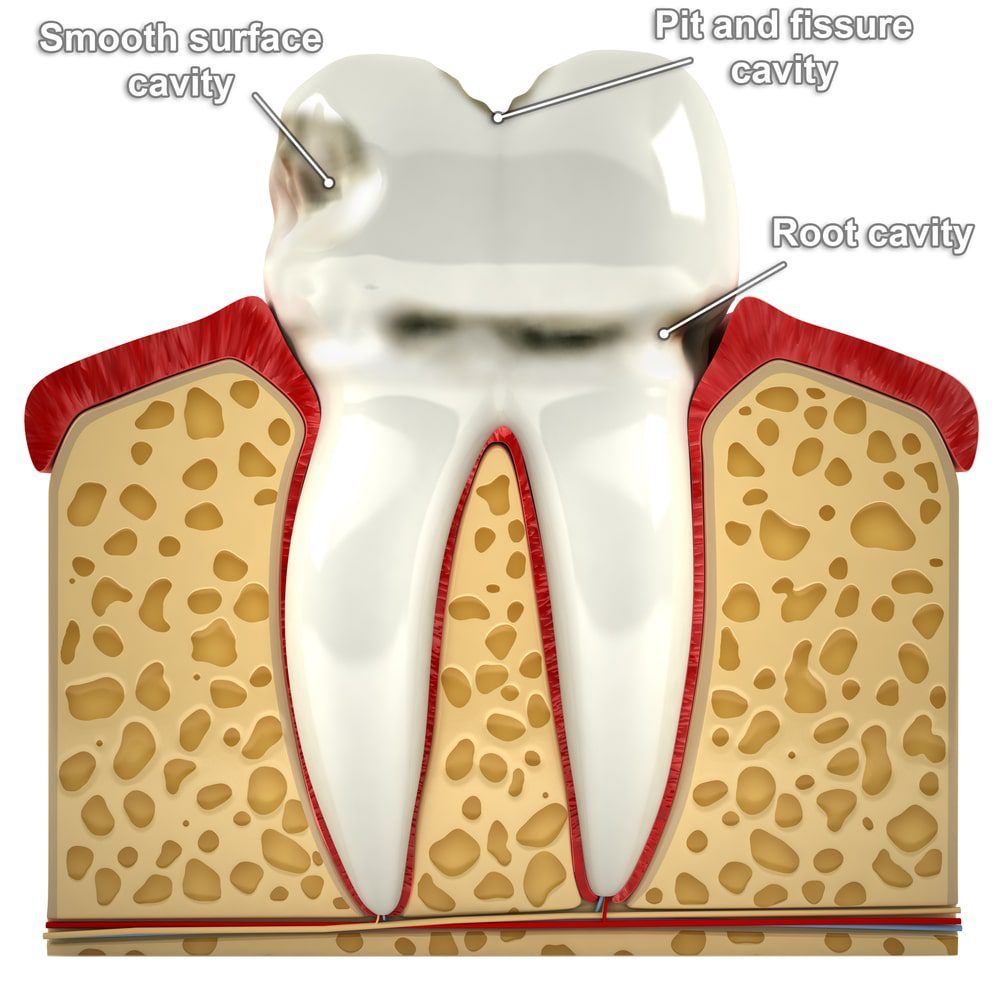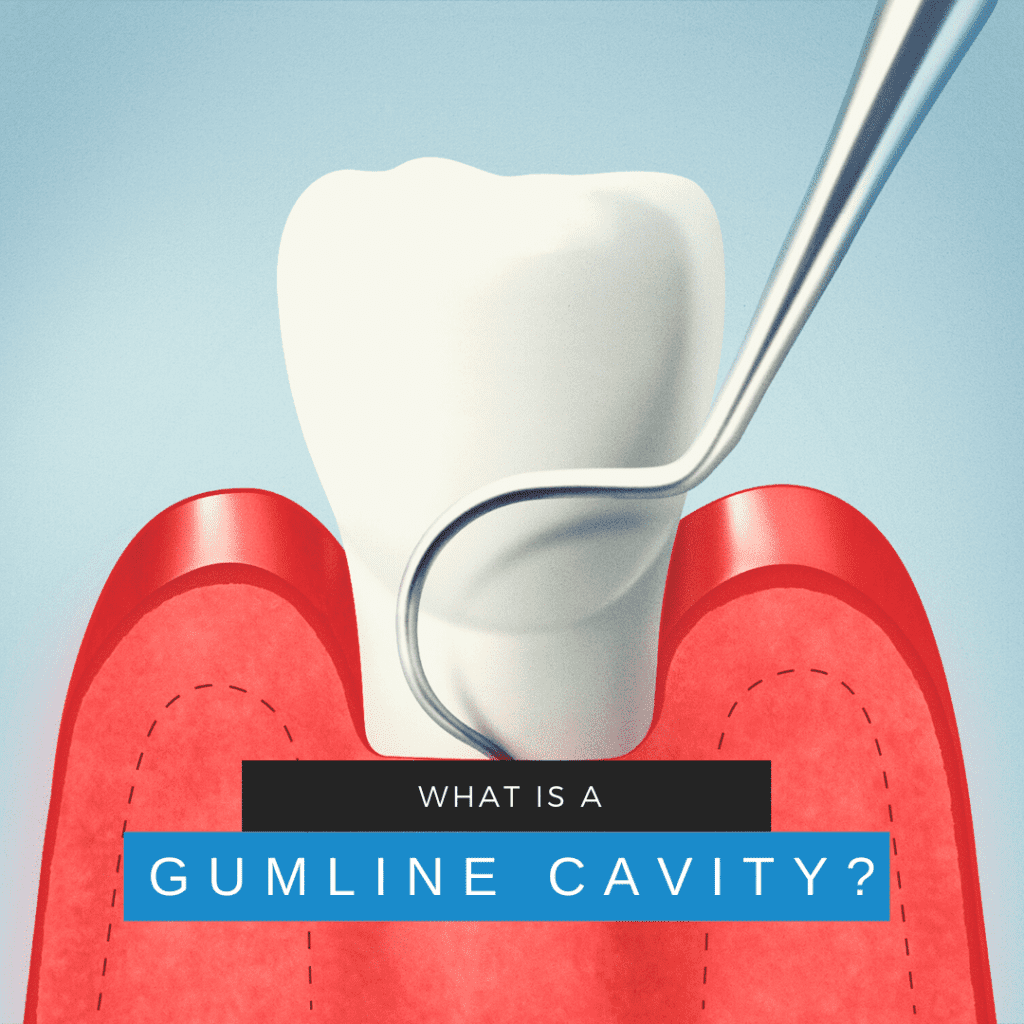Have you ever heard of a gumline cavity? Chances are you may not have, since they make up a very small percentage of cavities. Gum line cavities are a type of dental cavity that is found near or below the gum line. They’re more common than many people think, and can be dangerous if they’re not treated quickly. In this blog, Channo DDS talks about gumline cavities, as well as what causes them and how to treat them.
What is a Gumline Cavity?

Before getting into the specifics of a gumline cavity, we first need to discuss the fact that there are three different types of cavities. These include:
- Smooth surface cavities are cavities that form on the smooth surfaces of your teeth, such as the fronts, backs, sides, and in between your teeth.
- Biting surface cavities, also known as pit and fissure cavities, form on the chewing surfaces of your teeth.
- Root cavities are cavities that occur below the gum line on the tooth roots.
A gum line cavity is not a specific type of cavity, rather it can be classified as either a smooth surface or root cavity. Cavities that form on or near the gums are considered smooth surface cavities, while those that develop on the tooth roots below the gums are known as root cavities.
What Causes Gumline Cavities?
Gumline cavities are caused by the same thing that causes other types of cavities. This includes:
- Bacteria that live in your mouth and consume the sugars from the food you eat.
- The build-up of plaque on your teeth.
- Not brushing and flossing regularly.
A cavity forms when the bacteria in your mouth consume the sugars from the food you eat. This process creates acid that attacks your teeth, and over time can damage the enamel. If not treated, this damage can spread to the dentin and even down to the pulp of your tooth.
Root cavities are especially problematic because the tooth roots are coated by cementum. This is a thin tissue that is softer than enamel and easier for bacteria to erode. This means that there is an increased risk of tooth decay reaching the inside of the tooth and infecting the pulp.
How are Gumline Cavities Treated?
Both root and smooth surface gum line cavities require treatment, however it is especially important to have root cavities treated to prevent other dental problems. When having a gumline cavity treated, there are different options depending on the situation.
For smooth surface cavities that form near the gum line and do not involve any tooth roots, Dr. Channo will simply remove the decayed tissue and place a composite filling to restore your smile. Composite fillings are the basic treatment approach to all small to medium smooth surface cavities.
However if the cavity is located below the gumline, then things are more complicated. In these cases, treatment depends on the extent of the cavity. Root cavities may require your dentist to perform a root canal to prevent or treat a pulp infection. Alternatively, root cavities may need to have minor gum surgery performed in the case that the cavity extends below the gum tissue.
Your dentist will need to evaluate your individual case before making a treatment plan. However, Channo DDS always recommends getting any cavities treated as soon as possible to prevent the decay from spreading and causing further damage.
In Conclusion
Gumline cavities are a type of dental cavity that is found near or below the gum line. They’re more common than many people think, and can be dangerous if they’re not treated quickly. Channo DDS discusses how these types of cavities form, what causes them, and what you should do when one arises in your mouth to avoid further damage to teeth and gums.


